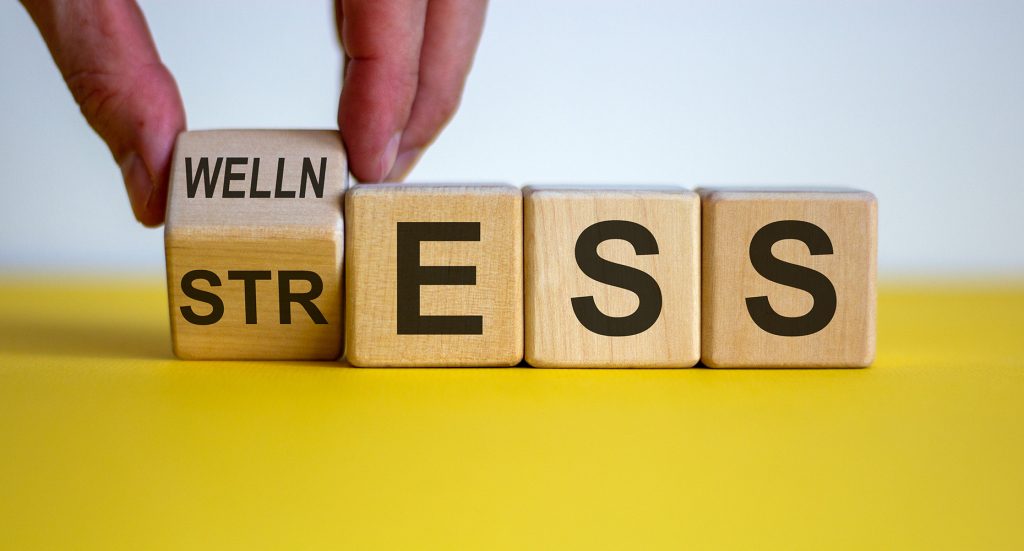Stress and Its Effects: A Slow Burn
Reflecting on his career of nearly 25 years managing a busy metropolitan infectious disease clinic, Fred observed, “The only normal thing about any day was the abnormality. Things were constantly in flux.” The need to deal with dynamic, fast-paced patient environments is common to many practices and only one source of occupational stress for practice employees.


Stress and Its Effects: A Slow Burn
April 29, 2021
.
Reflecting on his career of nearly 25 years managing a busy metropolitan infectious disease clinic, Fred observed, “The only normal thing about any day was the abnormality. Things were constantly in flux.”
The need to deal with dynamic, fast-paced patient environments is common to many practices and only one source of occupational stress for practice employees. Burnout among healthcare professionals is known to exceed that among other workers in the United States, and many are at even greater risk now, after more than a year on the frontlines of a pandemic.1
April is stress awareness month and an excellent time to explore the causes and often debilitating effects of stress. While educating patients is vital, it is more important than ever to address the needs of the people working within your practice. The National Academy of Medicine reports that more than half of U.S. physicians report symptoms of burnout. Other clinicians do not fare much better, with nurses, medical students, and residents reporting a similar prevalence of burnout and depression.1
From Fred’s perspective, the healthcare environment has become more stressful as clinicians and administrators are challenged to manage higher expectations with lower staffing, the introduction of multiple IT systems, and greater numbers of patients.

.
“In a high-volume clinic, you’re getting a constant inflow of requests for appointments, questions about health issues and complaints,” he says. “Patients want immediate responses, which puts us in the position of trying to juggle patient care, our resources, and sometimes their procrastination.’
“Some days, I could feel my blood pressure rising and heart pounding. I would come home angry and depressed. There’s a sense of hopelessness in trying to satisfy every patient and knowing you can never succeed.”
The stress experienced by healthcare clinicians and other workers on a daily basis is troubling in that long-lasting stress can significantly diminish quality of life and lead to chronic health issues. Stress manifests in several ways, including2:
.
• headache
• muscular tension
• fatigue
• insomnia
.
• irritability
• anxiety
• stomach disorder
.
These can be symptomatic of more profound consequences involving multiple physiological systems, such as the nervous system, immune system, cardiovascular system, and digestive system.3
The Stress Effect
Stress triggers the release of hormones – adrenaline and cortisol, to name a few – that set off a series of complex reactions within the body. To many, this is known as the “fight or flight response.” Respiratory rates increase, blood pressure elevates, glucose rises, heart rate variability declines, and blood flow is redirected to skeletal muscles.
On an immediate basis, these changes can increase alertness, focus, and motivation, but the wear and tear of prolonged stress can be harmful to many bodily functions:
The nervous system3: Stress has been shown to cause structural changes in the nervous system affecting memory, cognition, and learning. These changes can include loss of brain mass, reductions in the number of dendritic branches, and decreases in neurons. These effects have been linked to a reduction in spatial memory, weakening verbal memory, mood disorders, and decreases in reaction time.
The immune system3: The effect of stress on the immune system is well documented. Alterations in stress-related chemicals produced by the body can lead to imbalances in the immune system. Studies have shown that the adverse effects of these imbalances can suppress the immune system and heighten the disease risk. In the worst cases, this immune suppression can even lead to malignancies.
The cardiovascular system3: The occurrence of stress sets off a chain reaction throughout the cardiovascular system that can affect heart rate, heart contraction, and oxygen demand, instigate vasodilation and constriction of arteries and veins leading to major organs and alter sodium levels. This can result in changes in blood pressure and may put some people at risk for cardiovascular arrhythmias and heart attacks.
The digestive system3: People experiencing stress may notice changes in their appetite. Consuming too much or too little food can, in turn, affect a person’s quality of nutrition. Stress also directly impacts the function of the gastrointestinal (GI) system that extends to GI tract motility, absorption, secretions, inflammation, intestinal barrier permeability, and bacterial counts. This explains in part why stress is linked to disorders such as irritable bowel syndrome, peptic ulcers, Crohn’s disease, and other GI diseases.
Of course, the actual effects of stress will vary with the intensity, duration, and an individual’s own genetic make-up and tolerance. But clearly, minimizing unnecessary stress should be a priority for every healthcare professional.
Of course, the actual effects of stress will vary with the intensity, duration, and an individual’s own genetic make-up and tolerance. But clearly, minimizing unnecessary stress should be a priority for every healthcare professional.

Taming Stress
For Fred, the accumulation of stress ultimately led to his decision to retire. “I liked my job and loved my coworkers, but the lack of staffing and demands of the job wore on me. It just wasn’t worth it anymore.” Still, it took him six years from the when he started thinking about retirement to when he actually made the move.
Of course, not every healthcare professional is at a point in his or her life, where retirement makes sense. How does one begin to address the important task of stress reduction when many are maxed out?
The Centers for Disease Control offer a variety of tips for coping with stress. While focused on pandemic-induced stress, these techniques can be useful under any circumstances:4
- Communicate openly with coworkers, supervisors, and employees about job stress.
- Identify factors that cause stress and work together to identify solutions.
- Ask about how to access mental health resources in your workplace.
- Identify and accept those things over which you do not have control.
- Increase your sense of control by keeping a consistent daily routine when possible.
- Try to get adequate sleep.
- Make time to eat healthy meals.
- Take breaks during your shift to rest, stretch, or check in with supportive colleagues, coworkers, friends, and family.
- When away from work, get exercise when you can. Spend time outdoors, either being physically active or relaxing. Do things you enjoy during non-work hours.
- Take breaks from watching, reading, or listening to news stories, including social media. Hearing about the pandemic repeatedly can be upsetting and mentally exhausting, especially since you work with people directly affected by the virus.
- If you feel you may be misusing alcohol or other drugs (including prescriptions), ask for help.
- Engage in mindfulness techniques, such as breathing exercises and meditation.
- If you are being treated for a mental health condition, continue with your treatment and talk to your provider if you experience new or worsening symptoms.
Practice administration should be proactive in discussing stress and ways to alleviate stress with employees. Burnout can contribute to medical errors, declines in patient satisfaction, and employee turnover – all of which carry tangible and intangible costs.1 You can find stress reduction tips from the American Academy for Family Physicians (AAFP) and others at the end of this article.
As for Fred, he is enjoying the first weeks of retirement, but he says the old stresses are now replaced with new ones. “Slowing down is going to be a transition. There are new projects now, but at least there’s less urgency, and I have more control.”
His wife tells him she has already noticed changes in his mood and says he seems to be more connected to the little things going on around him. Undoing the effects of stress may take time, but it’s a start.
For additional information on coping with stress and building stress resilience, see the links below:
Footnotes:
1 Dyrbye, Lotte N, et al. “Burnout Among Health Care Professionals: A Call to Explore and Address This Underrecognized Threat to Safe, High-Quality Care.” NAM Perspectives, 5 Jul. 2017, https://nam.edu/wp-content/uploads/2017/07/Burnout-Among-Health-Care-Professionals-A-Call-to-Explore-and-Address-This-Underrecognized-Threat.pdf.
2 “Stress Symptoms: Effects on your body and behavior.” Mayo Clinic, 4 Apr. 2019, https://www.mayoclinic.org/healthy-lifestyle/stress-management/in-depth/stress-symptoms/art-20050987.
3 Yaribegi, Habib, et al. “The Impact of Stress on Body Function: A Review.” EXCLI Journal, vol 16, 21 Jul. 2017, pp. 1057-1072, doi:10.17179/excli2017-480.
4 “Healthcare Personnel and First Responders: How to Cope with Stress and Build Resilience During the Covid-19 Pandemic.” Centers for Disease Control, 16 Dec. 2020, https://www.cdc.gov/coronavirus/2019-ncov/hcp/mental-health-healthcare.html.
Related Articles
Introducing the HemoCue Customer Portal